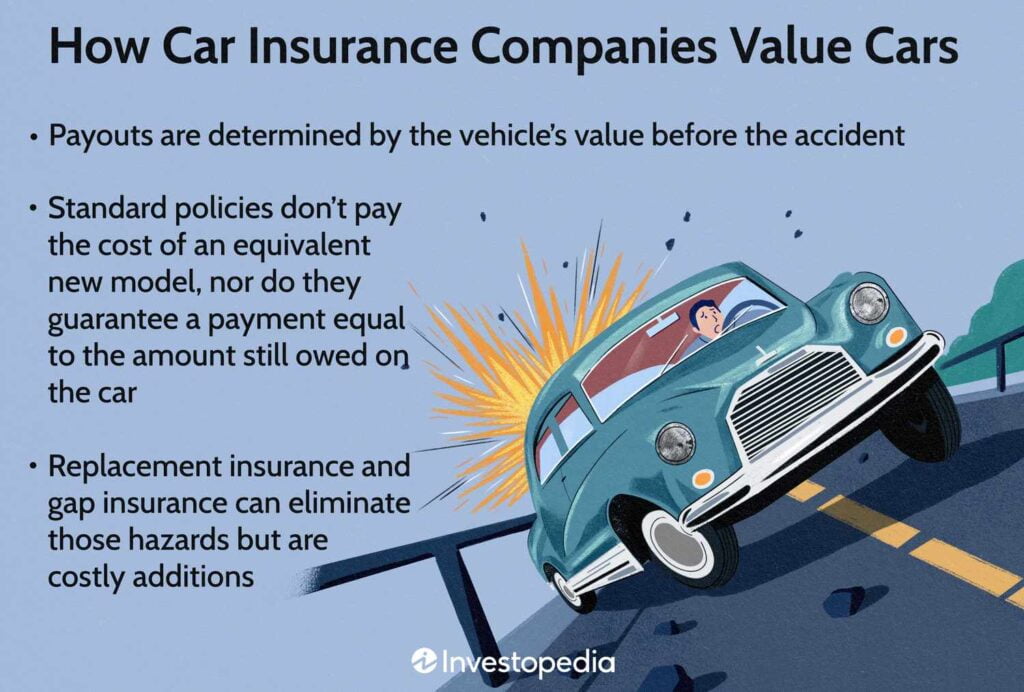Difference between Car Warranty And Car Insurance: Unveiling Key Distinctions
Car insurance protects a vehicle after an accident, while a car warranty covers repair costs due to malfunctions, providing a buffer against sudden financial loss due to a car defect. While insurance covers collisions and other perils, a warranty typically covers mechanical breakdowns caused by faulty workmanship or defective parts. They are not the same and apply in different scenarios, offering different types of coverage. Exploring The Key Differences When it comes to protecting your vehicle, it’s important to understand the key differences between car warranty and car insurance. While both can help cover the costs of repairs, they offer different types of coverage based on their purpose. Let’s explore these differences in detail. Coverage And Purpose: Car Warranty Vs. Car Insurance A car warranty, also known as a manufacturer’s warranty, is designed to cover repair costs due to mechanical malfunctions. It acts as a buffer against sudden and unexpected financial loss caused by car defects. On the other hand, car insurance provides protection for your vehicle after an accident, covering damage and injuries resulting from collisions or other perils defined in your policy. Protection Against Accidents: Car Insurance Basics Car insurance works as a safeguard for your financial well-being and your vehicle in case of accidents, theft, or other incidents beyond your control. It may help pay for damages resulting from collisions, fires, theft, or other covered causes. In addition to vehicle repairs, it can also provide coverage for medical expenses, liability claims, and legal fees resulting from an accident. Protection Against Mechanical Malfunctions: Car Warranty Basics A car warranty, on the other hand, primarily focuses on protecting you from unexpected repair costs due to mechanical breakdowns. It covers repairs and replacements resulting from faulty workmanship or defective parts. However, it typically doesn’t cover damages caused by accidents or non-mechanical issues. Car Warranty Car Insurance Covers repair costs due to mechanical malfunctions Covers repair costs after accidents or other covered events Acts as a buffer against sudden financial loss from car defects Provides financial protection in case of accidents, theft, or other incidents Doesn’t typically cover damages from accidents May cover damages resulting from collisions, fires, theft, and more Understanding these key differences can help you make informed decisions when it comes to protecting your vehicle. While car insurance provides comprehensive coverage for accidents and other incidents, a car warranty offers specialized protection against mechanical malfunctions. It’s important to have both types of coverage to ensure your peace of mind on the road. Car Warranty: Diving Deeper Car Warranty: Diving Deeper explores the distinct disparity between car warranty and car insurance. While car insurance protects against accidents, a car warranty covers repairs for malfunctions, serving as a financial buffer against vehicle defects. Learn more about the differences between car warranty and car insurance. Car Warranty: Diving Deeper Car warranties, also known as manufacturer’s warranties, play a crucial role in protecting vehicle owners against unexpected repair costs caused by mechanical breakdowns or defects. Understanding the ins and outs of a car warranty is essential for every vehicle owner. Let’s delve deeper into what a car warranty entails: What Is A Car Warranty? A car warranty is essentially a contract between the vehicle manufacturer and the owner, promising to cover certain repair costs within a specified period. This warranty can vary in terms of duration and coverage, depending on the manufacturer and the specific terms and conditions outlined in the agreement. Understanding Manufacturer’s Warranty A manufacturer’s warranty is typically offered by the carmaker and comes in different forms, including bumper-to-bumper warranties and powertrain warranties. A bumper-to-bumper warranty covers almost all components of the vehicle, while a powertrain warranty focuses on the major mechanical parts, such as the engine and transmission. It’s important to carefully read and understand the details of the manufacturer’s warranty to know what is covered and what is not. Coverage For Mechanical Breakdowns One of the primary purposes of a car warranty is to provide coverage for mechanical breakdowns and repairs caused by faulty workmanship or defective parts. This means that if your vehicle experiences mechanical issues within the warranty period, the manufacturer will bear the cost of repair or replacement of the affected components. It’s important to note that a car warranty typically does not cover damages resulting from accidents, collisions, or normal wear and tear. Exclusions And Limitations Of A Car Warranty While a car warranty can bring peace of mind to vehicle owners, it’s crucial to be aware of the exclusions and limitations that come with it. These limitations may include time restrictions, mileage limits, and specific conditions that must be met for the warranty to be valid. Common exclusions from car warranty coverage often include regular maintenance, modifications to the vehicle, and damages caused by neglect or misuse. In conclusion, a car warranty serves as a safety net for unexpected mechanical breakdowns or defects, providing financial protection for vehicle owners. Understanding the specifics of your car warranty ensures proper utilization and prevents any misunderstandings regarding what is covered and what is not. Car Insurance: Unveiling Its Scope When it comes to protecting your car, it is essential to understand the difference between car warranty and car insurance. While a car warranty primarily covers repair costs due to malfunctions, car insurance provides coverage for accidents and damages. Let’s dive deeper into the scope of car insurance and uncover its key aspects. What Is Car Insurance? Car insurance is a contract between the vehicle owner and the insurance company, providing financial protection against various risks. It ensures that you are not solely responsible for covering the costs incurred due to accidents, theft, or any other unforeseen incidents beyond your control. Protection Against Accidents And Damages One of the primary functions of car insurance is to protect you from the financial burden of accidents and damages. In case of a collision, your car insurance policy is designed to cover the repair costs, ensuring that your vehicle is back on the road as soon as possible. It
Difference between Car Warranty And Car Insurance: Unveiling Key Distinctions Read More »



